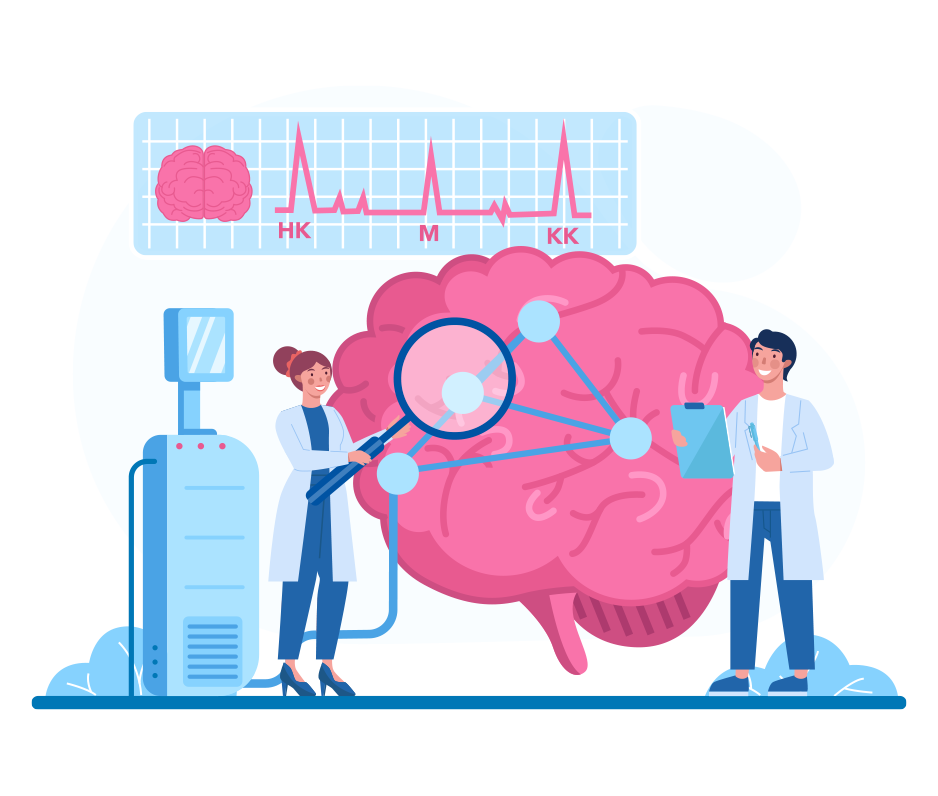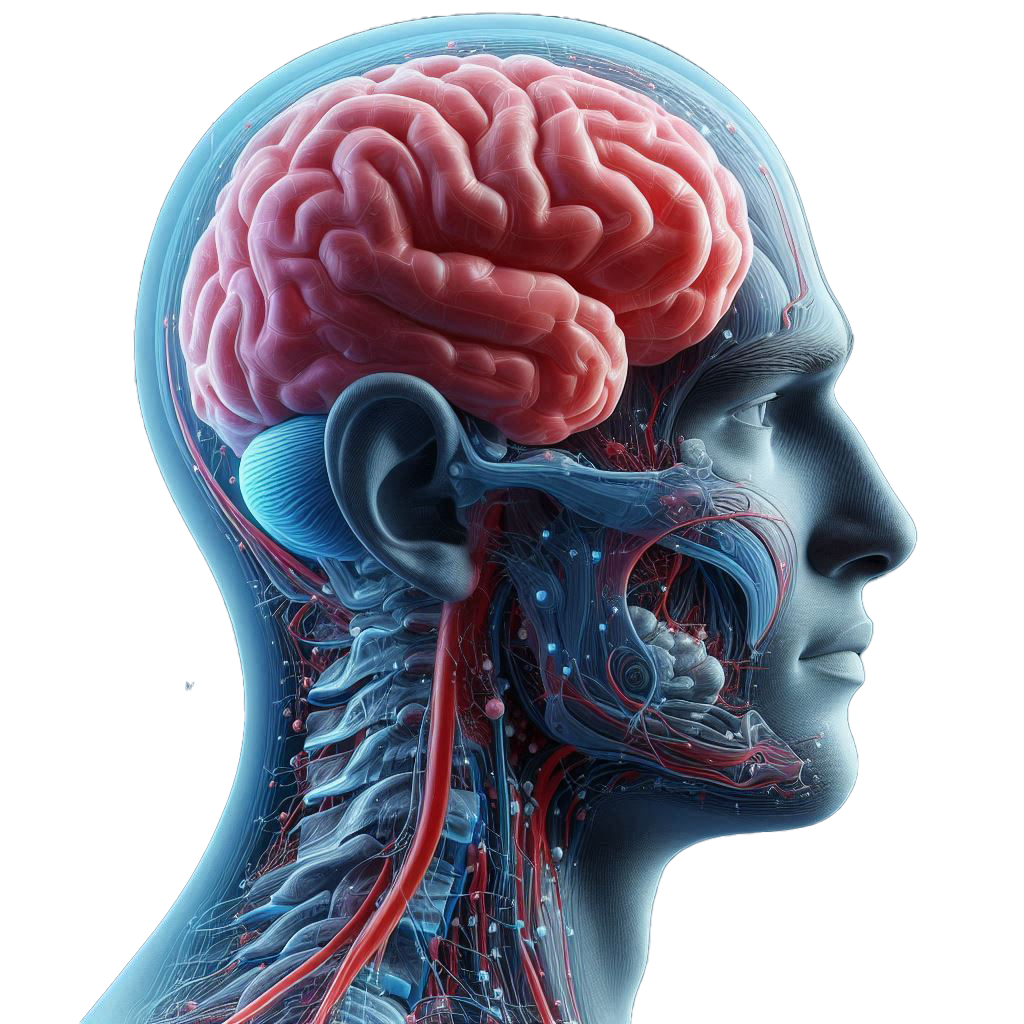This Course Structure is Curated as per the NEP-2020 Guidelines
Course Overview
B.Sc. Neuroscience Technology program at Malla Reddy Vishwavidyapeeth, Hyderabad, is an undergraduate program designed to train students to assist neurologists in diagnosing and managing neurological conditions using advanced technologies and innovative techniques.
This program focuses on equipping students with the theoretical knowledge and hands-on skills from 1st semester itself. The curriculum covers neuroimaging techniques, electrophysiology (EEG, EMG, NCV), and advanced diagnostic tools used to evaluate brain function, nerve conduction, and muscle activity. Students are also trained to understand the pathophysiology of neurological disorders such as epilepsy, Parkinson’s disease, stroke, and neurodegenerative diseases. This course integrates hands-on training in operating neurodiagnostic equipment, analyzing test results, and assisting neurologists during therapeutic interventions.
Graduates of this program emerge as skilled Neuroscience Technologists, enabling them to pursue further higher studies & do research in Neuroscience Technology along with plenty of job opportunities globally.

Course Details
Description: 4 Years Degree Program
No. of Seats: 40
No. of Credits: 160 minimum & as specified
- Eligibility
- Curriculum Structure
- Program Outcomes
- Career Enhancement
- Higher Studies
- Job Roles & Progression
The minimum qualification for B.Sc. Neuroscience Technology is a pass in the 10+2 examination from a recognized board (CBSE/ISC) with at least 50% in Physics, Chemistry and Biology from a recognized board (CBSE/ISC) or equivalent.
| Semester | Name of the Subject |
| Semester 1 | Anatomy – I Physiology – I Biochemistry – I Medical Physics English – I Computer Applications Practical: Anatomy & Physiology – I English & Communication Skills Computer Applications |
| Semester 2 | Anatomy – II Physiology – II Biochemistry – II Introduction to Neuroscience Technology English – II Legal Aspects of Healthcare Practical: Anatomy & Physiology – II |
| Semester 3 | Neuroanatomy Neurophysiology Neurodiagnostic Techniques I Microbiology Communicative English Healthcare Administration Environmental Studies |
| Semester 4 | Neurodiagnostic Techniques II Neuroimaging Techniques Pathology Indian Constitution Practical: Neurodiagnostic Techniques Project Centric Learning (PCL) |
| Semester 5 | Advanced Neurodiagnostics Neuromonitoring in Critical Care Quality Assurance in Neuroscience Practical – Neurodiagnostics Project Centric Learning (PCL) |
| Semester 6 | Applied Neuroscience Neurotherapeutics Advanced Neuroimaging Practical – Advanced Neuroscience Techniques Internship |
| Semester 7 | On-Job Training and Internship |
- Neurodiagnostic Testing: Proficiency in performing and interpreting EEGs, EMGs, and other diagnostic tests.
- Patient Preparation and Monitoring: Preparing patients for neuroimaging and monitoring during neurodiagnostic procedures.
- Neuroimaging Techniques: Hands-on experience with MRI, CT scans, and other brain imaging technologies.
- Neuromonitoring in Critical Care: Monitoring and responding to neurological changes in ICU settings.
- Equipment Maintenance: Ensuring neuro diagnostic equipment is calibrated and functioning.
Graduates of B.Sc. Neuroscience Technology can pursue advanced certifications and specialized training to expand their expertise.
- Certification in Neuroimaging: Specialized training in MRI, CT, and other imaging techniques for detailed brain and spinal assessments.
- Neurodiagnostic Certification: A focused program on EEG, EMG, and nerve conduction studies, preparing for work in neurology departments.
- Advanced Neuromonitoring Techniques: Training in critical care neuromonitoring, valuable for ICU settings.
- PACS Certification: Training in Picture Archiving and Communication Systems for managing neuroimaging data.
- Healthcare Quality and Safety Certification: Ensures adherence to quality and safety protocols, particularly in neuroscience diagnostics.
- Master’s in Neuroscience Technology or Clinical Neurophysiology
- Postgraduate Diploma in Neuro diagnostics
- MBA in Healthcare Management
- Ph.D. in Neurosciences
- Fellowship in Neuromonitoring or Neuroimaging
| Duration | Roles and Responsibilities | Salary Range |
| 0-3 years | Neuroscience Technician | ₹3,00,000 – ₹5,00,000 per annum |
| 3-5 years | Neurodiagnostic Technologist, Neuroimaging Specialist | ₹5,00,000 – ₹8,00,000 per annum |
| 5-10 years | Neuroscience Lab Manager, Advanced Neurodiagnostic Specialist | ₹8,00,000 – ₹12,00,000 per annum |
| 10+ years | Director of Neuroscience Services, Chief Neurodiagnostic Technologist | ₹12,00,000+ per annum |
Note: Salaries vary based on experience, location, and type of healthcare institution.

Fee Structure Per Academic Year - 2025
| Tuition Fee | Miscellaneous Fee | Scholarship | |||
| 125000 ₹ | 10000 ₹ | Above 95% – 125000 ₹ | Above 91% – 62500 ₹ | Between 81-90% – 12500 ₹ | Between 71-80% – 6250 ₹ |
| Tuition Fee | Miscellaneous Fee | Scholarship | ||
| 125000 ₹ | 10000 ₹ | Above 90% – 25000 ₹ | Between 80-90% – 12500 ₹ | Between 70-80% – 6250₹ |




